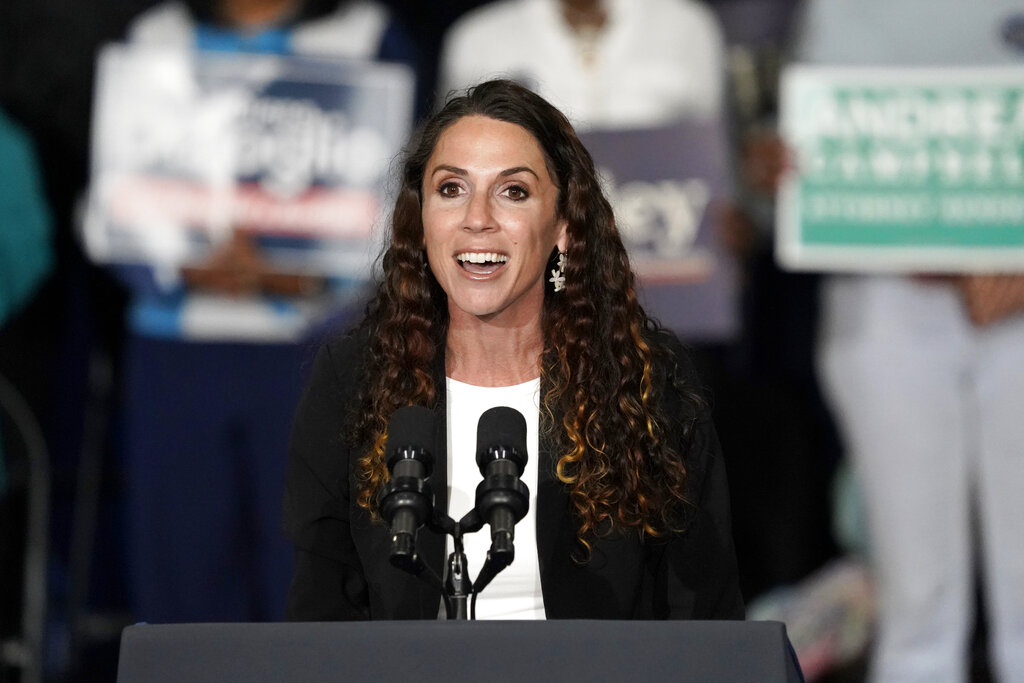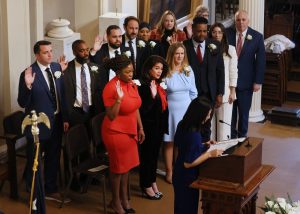
Massachusetts legislative audit ballot campaign raised more than $250K in 2023
The campaign behind an effort to grant the Massachusetts auditor the explicit authority to open up the Legislature’s books will report later this month that it raised more than $250,000 last year, according to a spokesperson for the group.
Committee for Transparent Democracy spokesperson Doug Rubin said the campaign to allow the state auditor to audit the Legislature has drawn support spanning the political spectrum — from Our Revolution members on the left to the Republican Party on the right.
“We have been overwhelmed by the support for our ballot campaign, both from people across the state who helped us gather over 100,000 signatures and from donors who helped us raise over $250,000 last year,” Rubin said in a Tuesday statement to the Herald.
State Auditor Diana DiZoglio is leading the effort, and has ultimately turned to the ballot box after the House and Senate stonewalled requests to cooperate with an audit and Attorney General Andrea Campbell declined to greenlight legal action to force the Legislature’s hand.
The ballot question proposal cleared a 75,000 signature threshold in November and was certified by Secretary of State William Galvin earlier this month, two key hurdles on the road to this year’s election.
“We have a really great opportunity to make meaningful change on Beacon Hill, and we won’t miss this moment. We’re really excited and I’m just really grateful to all the folks across the state who have helped out,” DiZoglio told the Herald last week.
Year-end reports for ballot question campaigns are due to the state’s Office of Campaign and Political Finance by Jan. 22 and offer a clear picture of fundraising and spending.
Galvin last week certified seven ballot questions and said three others would likely receive a stamp of approval later this month. After certification, the proposals head to the Legislature.
Any question sent to the Legislature must be heard by the committee to which it is referred and a report issued. Legislative action on a proposal must occur before the first Wednesday in May, according to Galvin’s office.
If the Legislature rejects a proposal or does not act on it by the first Wednesday in May, campaigns can gather an additional 12,429 certified signatures to force the measure onto the November ballot, according to Galvin’s office.


